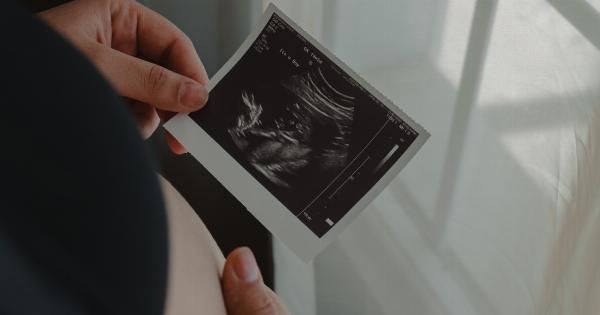Smoking is a dangerous habit that poses numerous health risks to individuals, and particularly so during pregnancy. The harmful chemicals present in cigarettes can have severe consequences for both the mother and the unborn child.
Smoking during pregnancy has been linked to a myriad of adverse effects, including low birth weight, premature birth, developmental issues, and respiratory problems. One of the most alarming risks associated with smoking during pregnancy is the increased likelihood of Sudden Infant Death Syndrome (SIDS).
What is Sudden Infant Death Syndrome (SIDS)?
Sudden Infant Death Syndrome (SIDS), also known as cot death or crib death, is an unexplained phenomenon where an otherwise healthy infant under the age of one dies unexpectedly during sleep.
The exact cause of SIDS is still unknown, but several risk factors have been identified, with smoking during pregnancy being a significant one.
The Link Between Smoking and SIDS
Research has consistently shown a strong correlation between maternal smoking during pregnancy and Sudden Infant Death Syndrome (SIDS).
Studies indicate that babies born to mothers who smoke are up to three times more likely to die from SIDS compared to infants of non-smoking mothers.
There are several reasons why smoking during pregnancy increases the risk of SIDS:.
1. Nicotine Exposure
When a pregnant woman smokes, the chemicals from cigarettes, including nicotine, cross the placenta and enter the baby’s bloodstream.
Nicotine exposure can have profound effects on the developing fetal brain and central nervous system, potentially disrupting the regulation of vital functions like breathing and heart rate that are crucial during sleep.
2. Oxygen Deprivation
Smoking reduces the oxygen supply to the fetus by constricting blood vessels and impairing the normal exchange of oxygen and carbon dioxide.
Oxygen deprivation can compromise the baby’s ability to regulate their breathing, making them more vulnerable to SIDS.
3. Respiratory System Damage
The harmful chemicals in cigarette smoke can damage the delicate airways and lungs of the developing fetus.
This damage may persist after birth, rendering infants more susceptible to respiratory infections and complications such as pneumonia and bronchitis, which are known risk factors for SIDS.
4. Inflammatory Response
Smoking during pregnancy triggers an inflammatory response in the placenta and fetal tissues.
Inflammation is associated with increased production of cytokines, which can disrupt the normal development of the baby’s brainstem—a region responsible for regulating important bodily functions, including respiration and heart rate. Altered brainstem development may contribute to the occurrence of SIDS.
5. Secondhand Smoke Exposure
Infants exposed to secondhand smoke after birth are at an even higher risk of SIDS.
The toxins present in secondhand smoke can further compromise the baby’s respiratory system and overall health, making them more susceptible to sudden and unexplained death during sleep.
Preventing SIDS: Quitting Smoking
The evidence is clear: smoking during pregnancy significantly increases the risk of Sudden Infant Death Syndrome (SIDS). To protect the health and well-being of their unborn child, it is crucial for pregnant women to quit smoking as soon as possible.
Quitting smoking may be challenging, but there are several resources available to support expecting mothers in their journey towards a smoke-free life.
1. Seek Professional Help: Consult with your healthcare provider who can provide guidance and support tailored to your specific needs.
They may recommend nicotine replacement therapy, medications, or behavioral therapy to help you quit smoking successfully.
2. Join Support Groups: Joining a support group or seeking counseling can be immensely helpful. Sharing experiences with others who are going through a similar journey can provide encouragement, motivation, and a sense of community.
3. Create a Smoke-Free Environment: If you live with someone who smokes, discuss the importance of a smoke-free home for the health and safety of your baby.
Encourage them to quit smoking as well or establish designated smoking areas outside the house away from the baby.
4. Distract Yourself: Find alternative activities to distract yourself from the cravings. Engaging in physical exercise, practicing relaxation techniques, or pursuing hobbies can help you focus your attention elsewhere and reduce the urge to smoke.
5. Stay Positive and Persistent: Quitting smoking may not be easy, but remember that every day without cigarettes benefits both you and your baby. Stay committed, celebrate small victories, and seek support when needed.
Conclusion
Smoking during pregnancy is a perilous choice that exposes both the mother and the unborn child to numerous health risks. The impact of smoking on Sudden Infant Death Syndrome (SIDS) is particularly concerning.
The chemicals present in cigarettes can disrupt crucial physiological processes, impair respiratory function, and damage the developing fetal brain. It is crucial for pregnant women to prioritize the health and well-being of their child by quitting smoking as early as possible.
By taking proactive steps towards a smoke-free life, expectant mothers can significantly reduce the risk of SIDS and ensure a healthier future for their baby.






























